Opening a gateway to underrepresented narratives, Nida Manzoor's captivating debut feature film, Polite Society, defies conventions by centreing its narrative around the lives of two South Asian sisters, Ria and Lena. The film skillfully explores numerous cultural intricacies deeply ingrained in South Asian society. Reminiscent of Edgar Wright’s brand of action, especially Scott Pilgrim Vs. The World, the feature channels its narrative in frivolous and enjoyable visuals that are captivating, comical and deeply entertaining.
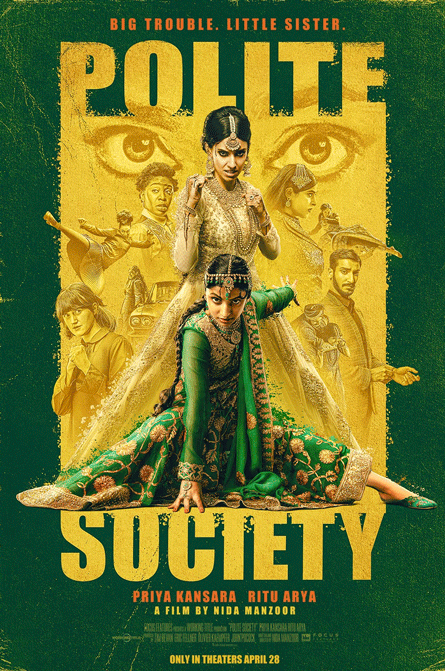
The film revolves around Ria Khan (Priya Kansara), an aspiring martial artist and her inseparable bond with her sister, Lena Khan (Ritu Arya). Lena, an art-school dropout, returns home, stirring up a mix of emotions. Their South Asian parents, adhering to stereotypes, dismiss Lena's artistic pursuits as unconventional despite boasting about their progressive attitudes. However, Lena's engagement with Salim (Akshay Khanna), a wealthy genealogist with influence in the British South Asian community alters the family's perception positively.
Yet, Ria's instincts trigger suspicions about the engagement's authenticity. With the support of her friends, she embarks on a daring mission to sabotage the impending wedding. Their fears are confirmed when Salim's mother, Raheela (Nimra Bucha), unveils a malevolent plan involving Lena as an unwitting surrogate for Raheela's cloned child. In a thrilling climax, Ria bravely exposes the truth to Lena, setting off an electrifying action sequence. The sisters navigate through breathtaking stunts, evading wedding guests determined to stop them. The film culminates with a heartwarming moment of sisterly bliss, radiating with joy and affection.
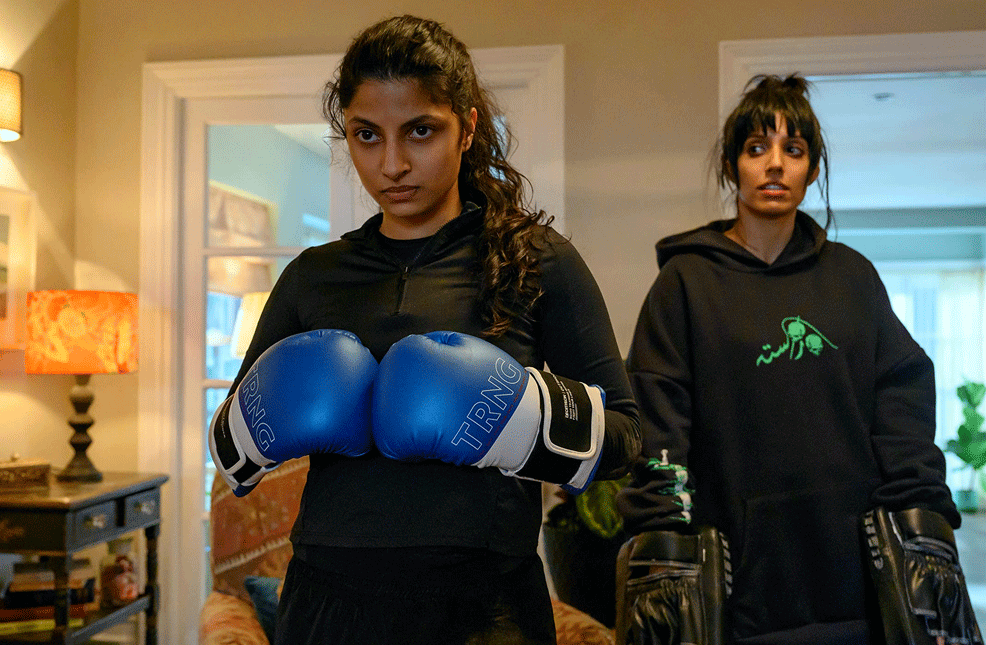
By placing emphasis on the narratives of individuals oppressed by patriarchal and hetero-patriarchal norms, the film aligns with the United Nations Sustainable Development Goals and highlights the importance of achieving the goal of Gender Equality. Additionally, by shedding light on the experiences of the British South Asian diaspora and giving voice to an underrepresented community, the film brings attention to the goal of Reduced Inequalities, both within and between countries.
Manzoor's portrayal of the character Raheela as the villain in the film is intriguing. The decision to depict a woman and matriarch as a representative of patriarchy adds an additional layer of complex realism to the narrative. Patriarchy within South Asian society is often upheld by women themselves, even if they are simultaneously oppressed by it. Raheela champions “aunty culture,” or the culture of middle-aged women who are, among other things, known for their disdain for those younger people whom they deem transgressive and belligerent. At very the heart of Raheela’s villainy is the notion of stripping away Lena’s bodily autonomy.
Manzoor’s decision to focus on this particular brand of viciousness is deliberate and coincides with topical discussions on bodily autonomy for women and queer people. In an era where a person’s right to medical procedures such as safe abortions is fiercely contested, this element of the plot harkens back to contemporary discourses on equal rights.
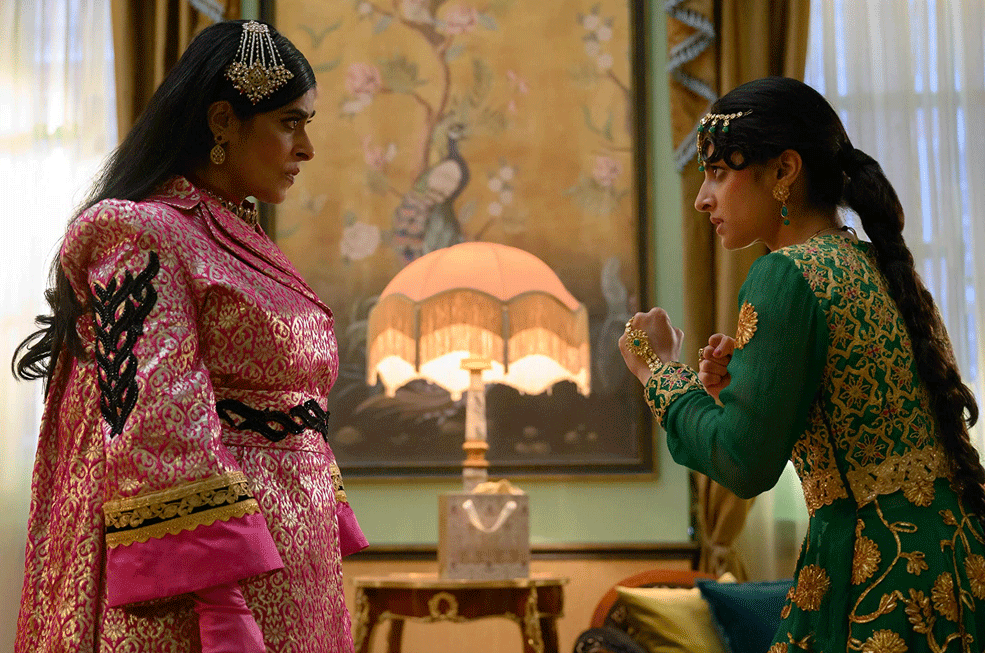
The film expertly captures the power and expression of South Asian feminine rage, resonating through its impactful dialogue, exhilarating action sequences, and engrossing storyline. In a memorable moment, Ria defiantly proclaims, 'I am the fury,' crystallizing her character into an empowered and fierce person ready to unleash her inner strength. This emancipatory statement symbolizes Ria's transformative arc, breaking free from societal expectations and embracing her inner strength. It becomes a rallying cry for the character and resonates deeply with audiences, striking a chord within those who have long yearned to see South Asian women liberated from the confines of demureness and obedience.
The film's exploration of South Asian feminine rage serves as a powerful commentary on the complexities and struggles faced by women within the cultural context. By defying stereotypes and shedding light on the untapped reservoirs of strength and passion, the narrative becomes an ode to the empowerment of South Asian women everywhere.
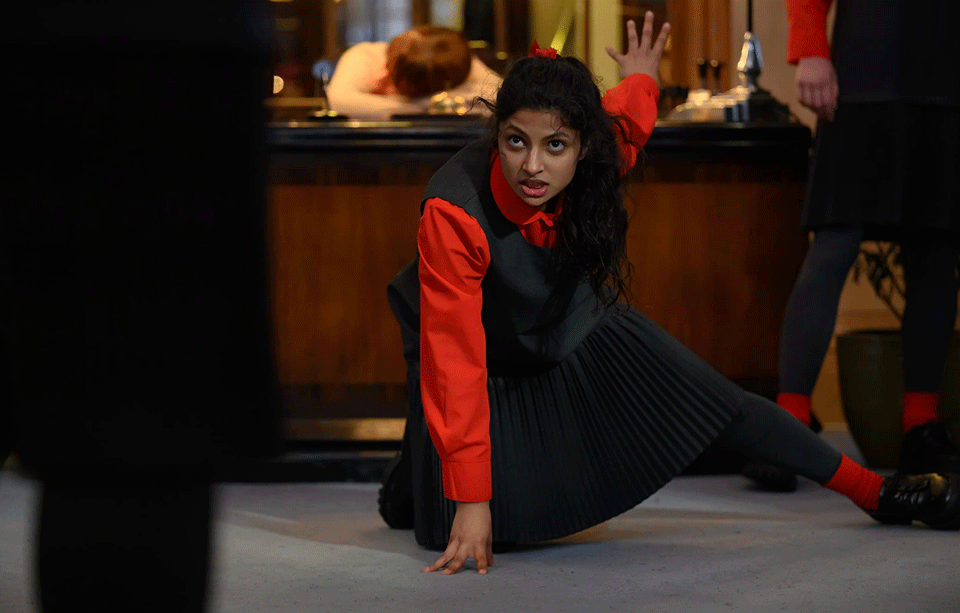
Furthermore, the film skillfully challenges the notion that South Asian women must conform to prescribed roles of submissiveness and passivity. It boldly showcases the multifaceted nature of these women, highlighting their capacity for resilience, determination, and unabashed self-expression. This portrayal not only challenges societal expectations but also provides a much-needed counter-narrative that empowers South Asian women to embrace their individuality and defy restrictive norms. In its exploration of South Asian feminine rage, the film takes a significant step towards dismantling the barriers that have silenced these voices for far too long. By unapologetically presenting a nuanced and authentic representation of South Asian women's experiences, it opens up important conversations about identity, agency and liberation.
Artistically, the film showcases a delightful blend of genres, skillfully incorporating elements of kitschy action and paying homage to the iconic traditions of Indian cinema. Through its clever storytelling and masterful direction, the film offers a unique and refreshing experience that keeps audiences engaged and entertained. One standout artistic choice comes in the form of a Bollywood-style dance sequence, serving as a loving tribute to one of the legends of Indian cinema, Madhuri Dixit. This homage adds a touch of nostalgic charm and pays homage to the vibrant and enchanting world of Indian musicals. The filmmakers skillfully weave this sequence into the fabric of the narrative, seamlessly blending the joyous dance movements and infectious energy with the overall plot.
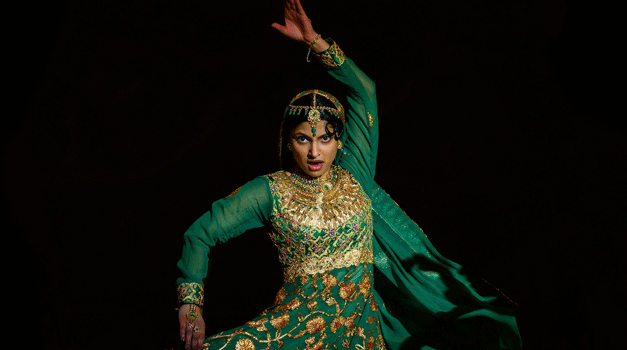
Overall, through its masterful combination of compelling storytelling, powerful performances, and a thought-provoking message, Polite Society stands as a remarkable testament to the resilience and strength of South Asian women. It serves as an empowering reminder that no one should be confined by stereotypes and that their rage and passion deserve to be acknowledged, celebrated and heard.
